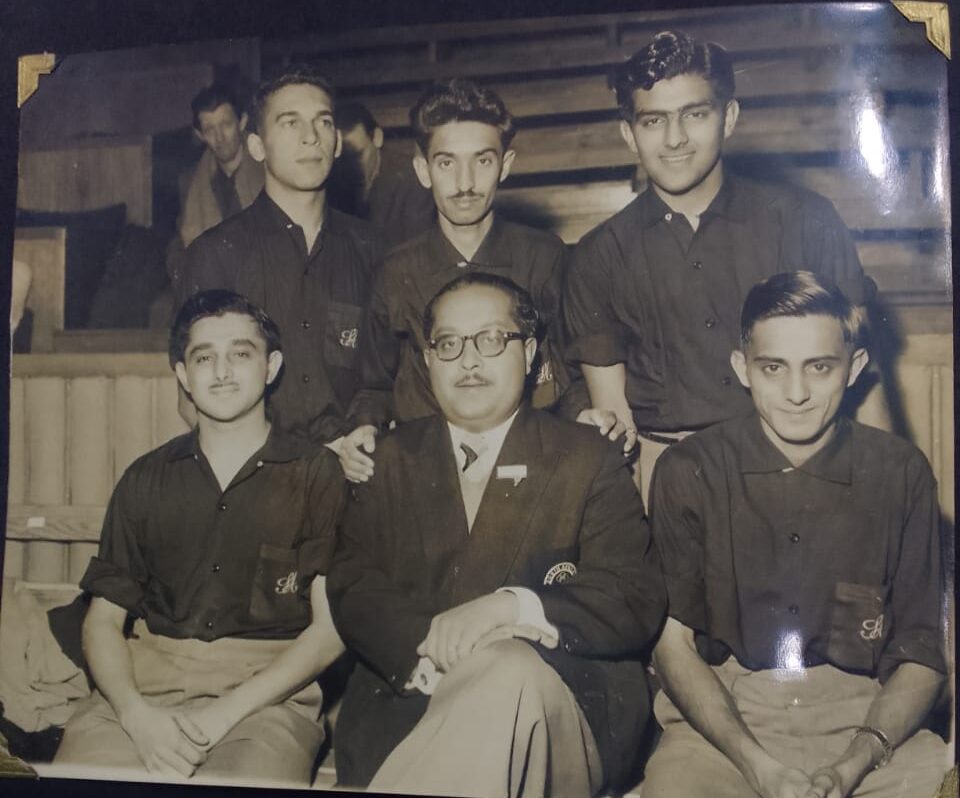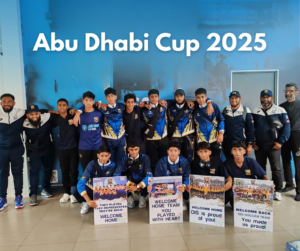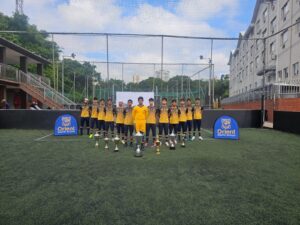
By Eric Imonina
What does it take to defy apartheid? For ‘‘Pops’’ Moolla, the answer was a table tennis bat.
M.G.H. ” Pops ‘‘Moolla was born in 1932 and died of cardiac arrest on the 11th January 1995. However, his life was abundant with fulfilment.
At 17 in 1950, he represented Southern Natal Table Tennis Championships and strove to the finals, outstripping the grandee champions of his day; namely, I.A. ‘‘Goofy’’ Timol and I.M. Randeree. But as the tournament tailed off, he was defeated by E.S. Randeree after a gruelling 5-set contest. Moolla’s defeat at the Table of Play in his youth did not deter him. He conscientiously strove for supremacy at the game.
In 1951 and 1957, he got to the finals at the Natal Men’s Table Tennis Tournament.
The visit to ‘‘Pops’’ Moolla’s son, Anwar, testifies to a sportsmanship that is generational in the family; his daughter is a biokineticist. She has a degree in sports science-helping the injured on the field of play.
Anwar, his son and daughter ran the London and Berlin Marathons sometime in 2024. ‘‘I did 20 comrades marathons,’’ Anwar says. ‘‘As a youngster, I played Table Tennis and qualified for Junior level and represented Southern Natal at Table Tennis Tournaments, but did not follow through as such,’’ he reflected.
Anwar demonstrates a quantum love for sport. He is currently involved in yet another sport known as ‘‘Padel’’. ‘‘It is similar to Pickle Ball and some of my friends and I have commercialised the sport by building Padel Courts in various places,’’ he says with a measure of satisfaction.
Today, Anwar is a businessman with a B.Com Law degree. However, sportsmanship is not only generational in his family, but trade and entrepreneurship are, as he learnt the intricacies of the clothing industry.
Meanwhile, the history of Pops Moolla is legendary.
Having been a member alongside his colleagues of the South African Table Tennis Board, with non-discriminatory rules and affiliated to the International Table Tennis Federation, they were invited to the World Table Tennis Championship in Sweden in 1957.
Approval from the apartheid government for Moolla and his team to travel to Sweden was starkly impossible. But the fervent desire to represent South Africa abroad was abiding. The group planned to exit the country individually; it was a way to evade the roving eyes of the authorities. They consisted of six men, namely, Cassim Peer [Captain], Ashwin Valjee, M.G.H. ‘Pops’ Moolla, P.R. ‘‘Bandy’’ Mandan [ all from Natal Durban] and D. Groenwald from Wynberg [Western Cape]. The manager of the team was Cassim Bassa, who was also President of the South African Table Tennis Board.
The team, the Ping Pong boys as they were known, arrived in Stockholm, Sweden. They played their matches at the Kunlighallen Royal Tennis Hall from 7th March to 15th March 1957. They were in group two, which had contestants such as Japan, Vietnam, Sweden, Poland, Iran, France, Finland and Canada.
Reportedly, the team lost all their matches 5-0. In some way, a culture shock, they admitted that the plank bats they knew and used contrasted with the use of rubber bats as they observed at the games, did them in. They would later learn that the table tennis ball is more flexible than the rubber bat, giving opponents an edge over them at the Table of Play. However, they would later pioneer the use of rubber bats back home in South Africa.
One of the highlights of their matches was against Japan. The Japanese clinched all aspects of the contest- Men’s Singles, Women’s Single’s and Mixed Doubles.
With the political strife back home in South Africa, the team was relieved they were in Sweden for sportsmanship.
In the same year of 1957, the South African or Ping Pong boys returned through the Mailship in Cape Town. Immediately, the apartheid regime, bruised by the team’s seemingly unsanctioned exit from the country, confiscated their passports. As such, they could not; Moolla and his colleagues could not compete overseas again.
Pops Moolla is till this day fondly remembered in the South African sporting circles as someone who not only excelled but also for his uprightness in all he did. For Moolla, sport was not just a game – it was a quiet revolution.











